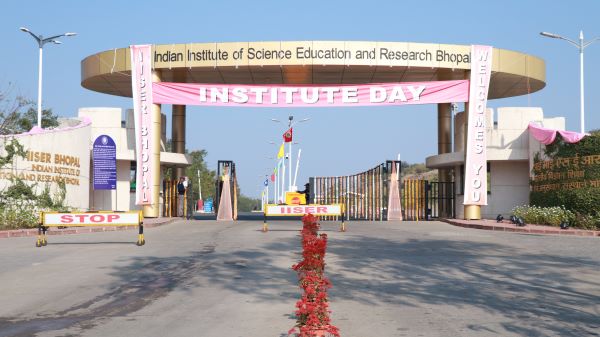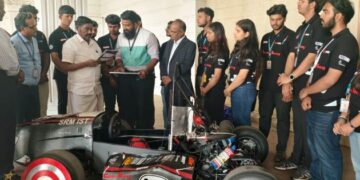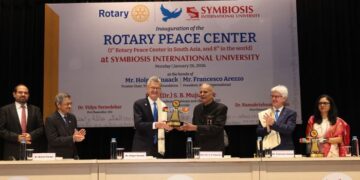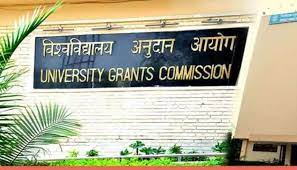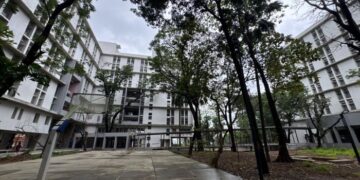The NEP 2020 is a comprehensive policy that aims to transform the education system in India and make it more inclusive, flexible, and interdisciplinary. July 29 marked its 3rd anniversary and as the premier HEIs align themselves to it, the emerging picture is that a new learning/teacher order and architecture is emerging.
Speaking about the implementation of NEP2020, Prof. Siva Umapathy, Director, IISER Bhopal said, “There are always challenges for any new changes that we bring in but if we have proper transparent methodologies, feedback mechanisms, and periodic revisions policy’s goals can be achieved. Implementation of NEP 2020 is possible at IISER Bhopal because of the faculty’s active support and acceptance of the new paradigms and willingness to deliver and participate in the designing courses and supporting them.”
In this regard, IISER Bhopal has implemented few features of NEP 2020 emphasizing the importance of interdisciplinary studies and research, encouraging students to explore diverse fields of knowledge, and promoting collaboration between different disciplines. IISER Bhopal offers the following courses with interdisciplinary approach across the 10 academic departments:
- Bachelor of Science (BS), the four-year degree course is offered in Chemical Engineering, Data Science and Engineering, Economic Sciences, Electrical Engineering and Computer Science. Provisions exist to obtain the BS-MS degree by spending an additional year in the programme.
- Bachelor of Science – Master of Science (BS-MS) dual degree five year is offered to students in Biological Sciences, Chemistry, Earth and Environment Sciences, Mathematics and Physics. The students have provision to opt for BS exit on completion of the fourth year of the programme to pursue PhD, MBA or can travel abroad for further studies in their interest area.
- Integrated Ph.D. is offered to students in the department of Mathematics and Physics. The students have the option to exit with M.S. degree on completion of three years of the programme.
IISER Bhopal is one of the first among the Institutes of National Importance in India to offer undergraduate programs in Data Science and Engineering. The undergraduate BS program in DSE is a blend of Engineering and Natural Science where 50% of the students are from science background and other 50% are from Engineering background. The fusion of domain knowledge (in natural, economics, and engineering sciences) with the scientific rigor to provide real-world solutions drives the DSE students to be highly attractive to industry and academia. The BS program curriculum of DSE is designed so that the final semester is completely free for carrying out research internships in industry/academia. Industry 4.0 requires a new set of graduates possessing the capacity to adapt to new technologies, new AI paradigms and so IISER Bhopal prepares its students to meet the challenges.
Focus on Physical fitness and Mental Health
The Institute takes care of students’ academic wellbeing based on their merit. By providing physical fitness courses in the first year, the Institute is promoting a healthy lifestyle and helping students maintain their physical health, which is essential for overall well-being and academic success. IISER Bhopal has an excellent infrastructure for different sports activities and gym facilities with dedicated coaches and instructors. The students participate in inter-institutional sports events and showcase their skills and potential.
Moreover, the Institute also has peer counselors to look after students’ mental welfare. The counselling cell of the institute conducts various events and workshops like “Unlocking Intuition with Breath- a guided meditation session”, “Expressive Arts Therapy Workshop” and awareness programmes on National Youth Day, World No Tobacco Day, World Mental Health Day, World Suicide Prevention Day for the students and community members.
Undergraduate Clubs for Research Enthusiasts in Science and Technology
IISER Bhopal has a novel educational program called ‘Undergraduate Clubs for Research Enthusiasts in Science and Technology’ (UG-CREST). It is a unique attempt to cultivate scientific attitudes in the early days of a young graduate student. The clubs aim to nurture the research capabilities of undergraduates’ students at the institute from early years and actively engage students intellectually in addition to regular course work.
Enhancing skills of students
The Institute has a dedicated “Institute Career Development and Placement Council” which conducts soft skills workshops by expert speakers to provide students with the opportunity to learn from experienced professionals and gain insights into effective communication skills, interpersonal skills, stress management, conflict handling, teamwork, Networking etc.
The students are provided with research and industry internships opportunities in National and International level to gain practical knowledge and skills of real scenarios in workplace environment.
IISER TVM
Indian Institute of Science Education and Research Thiruvananthapuram (IISER TVM) has so far taken the several steps to align education and research at the institute with NEP 2020: A comprehensive overhaul of the curriculum and the structures of courses of the flagship integrated BS-MS program of IISER TVM has been taken up over the past year, with the following changes already coming into force from the start of the coming academic year. Augmentation of the curriculum with courses in humanities, arts, social sciences, etc., has been carried out by revising the course structure of the BS-MS program to enable students to credit a larger number of courses in disciplines outside of their respective specialisations.
Two new research centres, namely the Centre for Advanced Materials Research with International Engagement (CAMRIE) and the Centre for high-performance computing (CHPC) were established to bring together faculty from diverse backgrounds to engage in cross-disciplinary collaborative research and to train a new generation of students who are competent to pursue research without the traditional boundaries of sciences.
In order to promote a vibrant extracurricular environment, IISER TVM has augmented the functioning of the existing Student Affairs Council by adding new clubs, activity groups etc. NEP envisages the promotion of these activities initially as parts of such clubs and groups with the eventual aim of integrating them also into the mainstream of academic discourse with credit points assigned to such activities.
Outreach:
Students, faculty and staff conduct outreach activities in schools and colleges, bringing awareness about the possibilities offered by the HEI and in pursuing careers in science. Prime Ministers Research Fellowship (PMRF) awardees perform teaching duties in colleges and schools around IISER TVM as they are required to do under the PMRF scheme. IISER TVM has entered into MoUs with local institutions to facilitate sharing of expertise and knowledge.
The Central University of Tamil Nadu (CUTN) under NEP 2020 recognizes the significance of skills in the modern job market. A range of abilities, such as communication, digital literacy, and proficiency in multiple languages, including regional languages, offer skills to secure the best job opportunities.
The introduction of the credit transfer system has proven to be a game-changer for many students. The “exit program” allow students to relocate due to personal reasons, such as marriage, without any hindrance to their education. They can seamlessly continue their studies in the educational institution nearest to their new location. Similarly, CUTN invites students from across the country through the “re-entry program” to ensure that no deserving candidate misses out on quality education.
Prof. M. Krishnan, Vice Chancellor also emphasized the pivotal role schools play in the implementation of NEP 2020. Early adaptation of the policy enables young learners to develop essential skills from an early age, contributing to their personal growth and the overall development of the nation.


